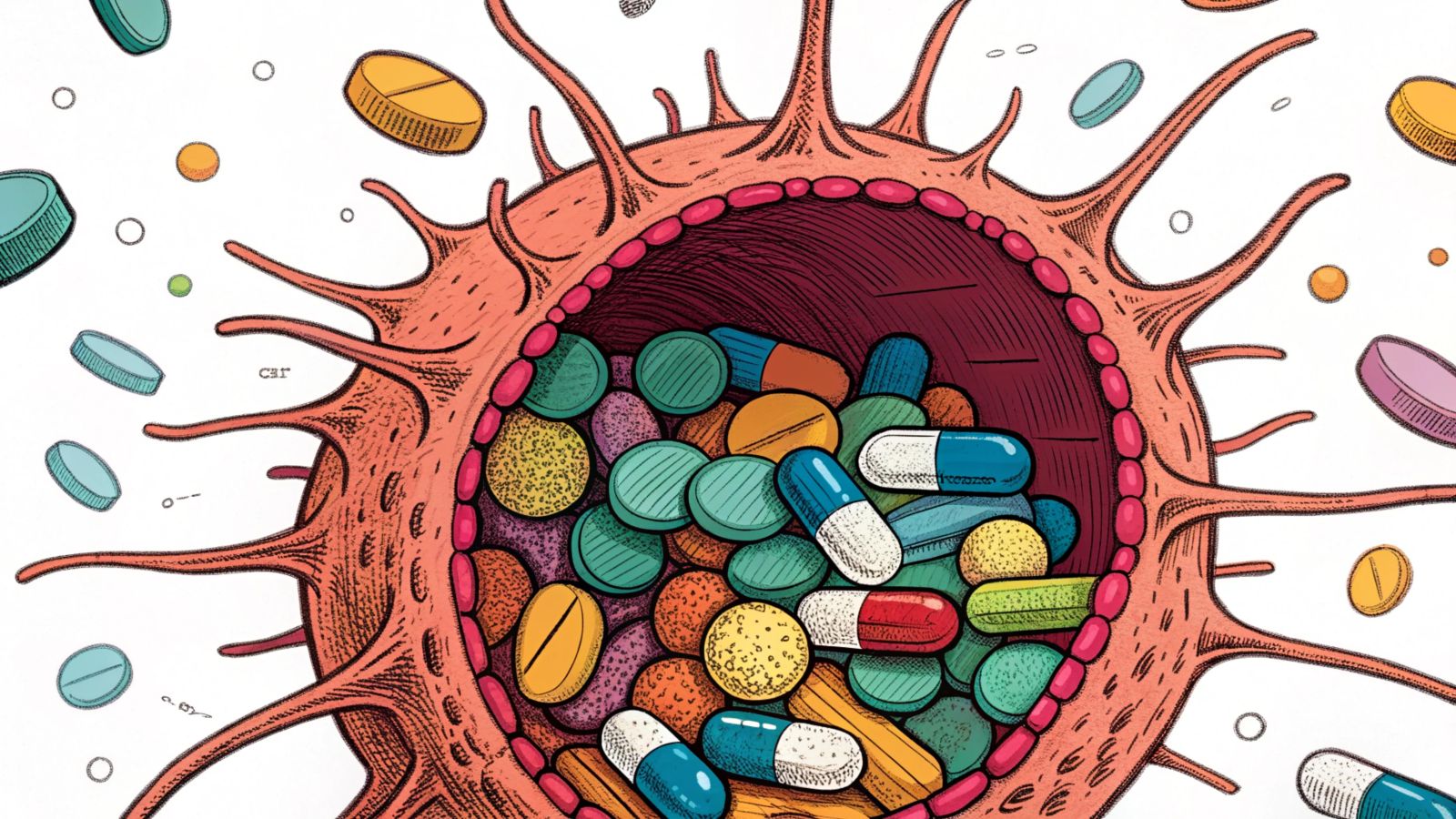Follow us on Google News (click on ☆)

PROTACs, a promising class of cancer drugs, often struggle to penetrate cells due to their large size. A team of scientists has identified the CD36 protein as a natural means to transport these bulky molecules inside cells. This approach has significantly increased treatment effectiveness in preclinical studies.
The method, called chemical endocytic medicinal chemistry (CEMC), uses the natural process of endocytosis to facilitate drug entry into cells. This discovery could save many drugs previously deemed too large to be effective. Researchers found that modified PROTACs not only penetrated cells better but also showed increased potency against tumors.
PROTACs represent a major advance over traditional therapies as they completely degrade target proteins rather than simply blocking their activity. This characteristic reduces risks of drug resistance, a common problem in cancer treatments. Several PROTACs are currently in clinical trials for various diseases, including breast cancer.
The study, published in Cell, was conducted by researchers from several institutions. The results were independently replicated, strengthening the credibility of the findings. Although promising, this strategy still requires clinical trials before it can be applied to humans.
The implications of this research extend beyond cancer. The CEMC method could be adapted to improve the effectiveness of other large drugs, opening new perspectives for treating various diseases. Scientists are already considering other applications for this technology.
Why are PROTACs considered a major breakthrough in oncology?
PROTACs represent a new generation of targeted therapies that specifically degrade proteins involved in cancer development. Unlike traditional inhibitors, they completely eliminate the target protein.
This comprehensive action reduces the chances of cancer cells developing treatment resistance, a major problem with current therapies. PROTACs also target multiple protein functions, offering a more holistic approach.
Their modularity allows targeting a wide range of proteins, including those considered 'undruggable' with conventional methods. This flexibility makes them valuable tools for research and treatment.
With several PROTACs already in clinical trials, their potential to transform cancer treatment and other diseases is immense. This study further strengthens their prospects by improving their delivery to cells.